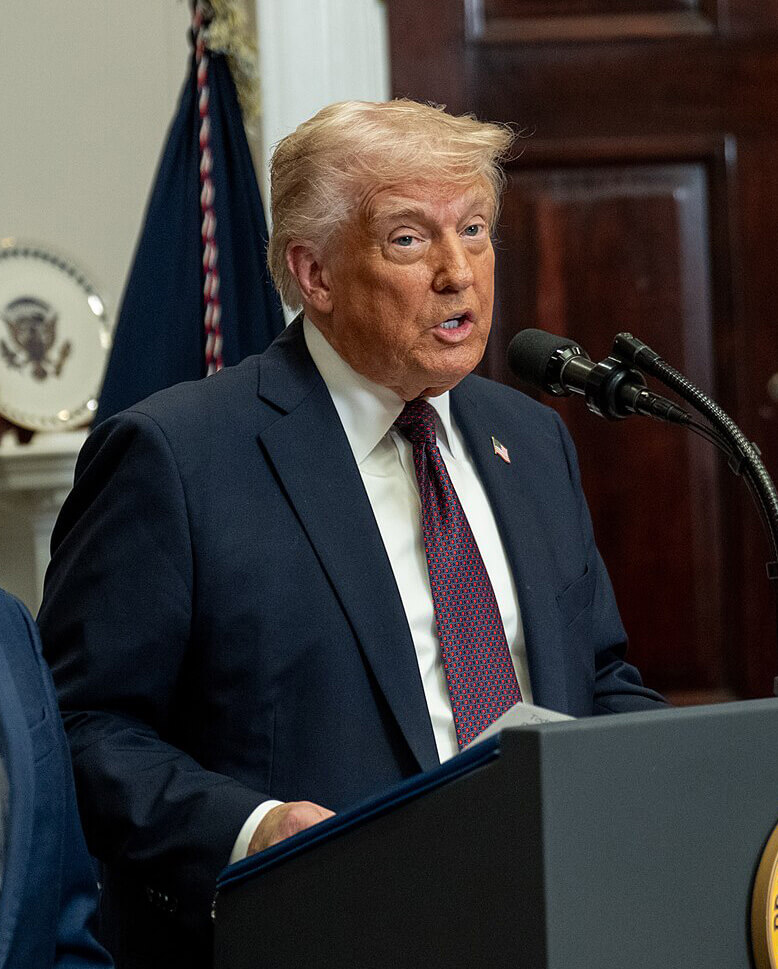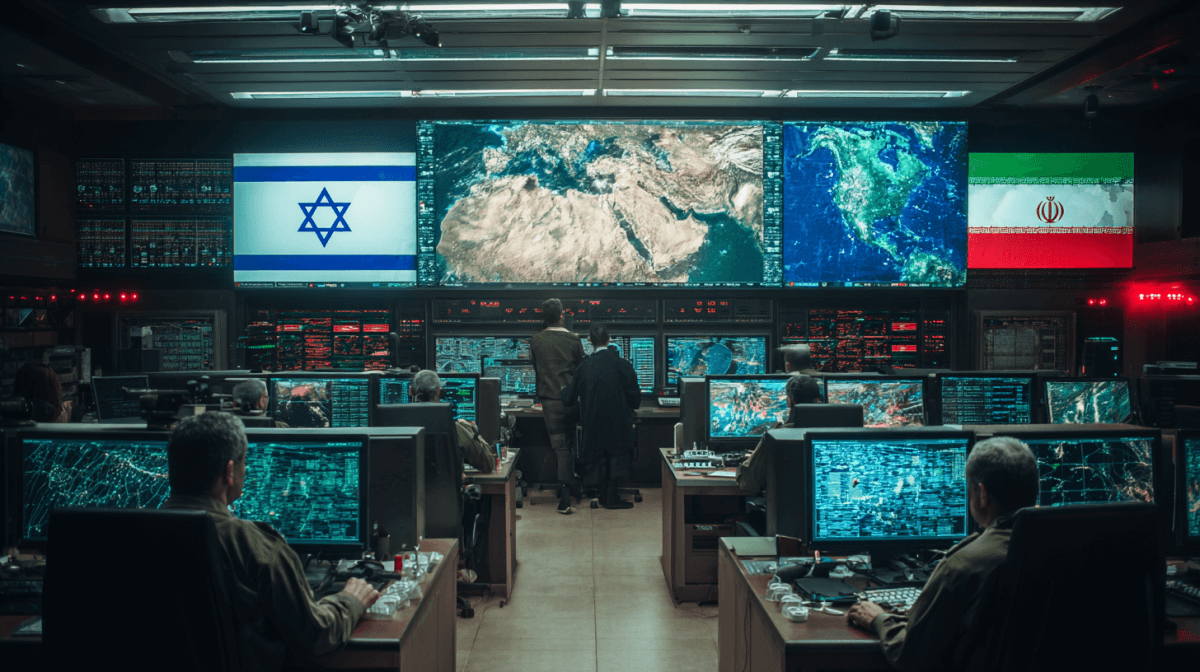
Key Elements at a Glance:
• Israeli official warns strike could happen "as soon as Sunday"
• UN nuclear watchdog declares Iran in breach of obligations (first time in 20 years)
• Iran announces counter-measures including third enrichment plant
• Trump says strike "could very well happen" while pursuing diplomacy
• US evacuating non-essential personnel from region
•Critical US-Iran talks scheduled for Sunday in Oman
This is a breaking story. Check this link or go to balancedright.net for updates as they come in.
The Middle East stands on the precipice of a potential military confrontation after a senior Israeli official told the Wall Street Journal that Israel could strike Iran's nuclear facilities as soon as Sunday unless Tehran agrees to halt production of material for an atomic bomb. The warning comes as President Trump said Thursday that such an attack "could very well happen," even as his administration pursues diplomatic solutions through ongoing nuclear talks with Iran.
Escalating Nuclear Standoff
The crisis reached a critical juncture Thursday when the United Nations nuclear watchdog's board of governors declared Iran in breach of its non-proliferation obligations for the first time in almost 20 years. The International Atomic Energy Agency's unprecedented move raises the prospect of reporting Iran to the UN Security Council and marks a dramatic escalation in the standoff over Tehran's nuclear program.
Iran immediately announced counter-measures, with an IAEA official confirming that Tehran plans to open a third uranium enrichment plant in response to the condemnation. The timing of these developments coincides with scheduled US-Iran nuclear talks set for Sunday in Oman, creating a volatile diplomatic and military situation.
"I don't want to say imminent, but it looks like it's something that could very well happen," Trump told reporters at the White House when asked about the possibility of an Israeli strike. The president's comments came after multiple intelligence reports indicated Israel has been making extensive preparations for potential attacks on Iranian nuclear facilities.
Intelligence and Military Preparations
US intelligence has obtained evidence that Israel is actively preparing for possible strikes against Iran's nuclear infrastructure. CNN reported that American officials have observed "the movement of air munitions and the completion of an air exercise" as part of Israeli military preparations. Two Israeli sources confirmed to Axios that the Israel Defense Forces have been conducting exercises and other preparations for a possible strike.
"There was a lot of training and the US military sees everything and understands Israel is preparing," one Israeli source told Axios. The intelligence community has shifted dramatically in recent days, with Israeli officials moving from believing a nuclear deal was close to thinking talks could soon break down.The Wall Street Journal reported that Israeli Prime Minister Benjamin Netanyahu raised the possibility of strikes in a phone conversation with Trump on Monday, citing two US officials familiar with the discussion. This conversation appears to have triggered increased US concern about imminent military action.
US Position and Limitations
"I don't want to say imminent, but it looks like it's something that could very well happen" - President Trump
The Trump administration finds itself caught between supporting its key ally Israel and avoiding a broader regional conflict that could threaten American interests. Axios reported Thursday that the White House has informed Israel that the United States will not be directly involved in any Israeli strike on Iranian nuclear facilities, according to US and Israeli sources.
"The Wall Street Journal said the U.S. would not provide 'offensive assistance' to Israel for an attack on Iran," Reuters reported. However, the US could still provide intelligence support, logistics assistance, and help defend Israel if Iran retaliates, though the extent of such support remains unclear.
Trump's Middle East envoy Steve Witkoff has been actively working to prevent the crisis from escalating to military action. In a closed-door briefing with Republican senators last week, Witkoff warned that Iran could respond to an Israeli strike with unprecedented force, potentially overwhelming Israel's missile defense systems and causing massive casualties.
Diplomatic Efforts Continue
Despite the military preparations and heated rhetoric, diplomatic efforts continue with the sixth round of US-Iran nuclear talks scheduled for Sunday in Oman. Witkoff confirmed the talks would proceed, though their outcome may determine whether the region slides toward military conflict.
Trump has maintained his preference for a diplomatic solution, posting on Truth Social: "We remain committed to a Diplomatic Resolution to the Iran Nuclear Issue! My entire Administration has been directed to negotiate with Iran. They could be a Great Country, but they first must completely give up hopes of obtaining a Nuclear Weapon."
The diplomatic track faces significant challenges. Iran has consistently rejected demands to completely dismantle its nuclear program, with President Masoud Pezeshkian striking a defiant tone Thursday. "If they destroy our facilities with bombs, everything will be lost—these capabilities exist in our minds, and therefore, whatever they do, we will rebuild," Iranian state media quoted him as saying.
Regional Security Implications
The potential for military action has prompted urgent security measures across the region. The US has begun withdrawing non-essential diplomatic staff and military family members from Iraq and other Middle Eastern locations. Trump acknowledged Wednesday that US personnel were being moved because "it could be a dangerous place."
Iran has threatened to retaliate against US targets if attacked, with Defense Minister Aziz Nasirzadeh warning that "in case of any conflict, the US will be the first target." This threat has heightened concerns about American forces stationed throughout the region.
CENTCOM commander General Erik Kurilla testified Tuesday that an Israeli strike on Iran would expose US forces in the Middle East to the threat of Iranian retaliation. The general's testimony underscored the broader regional risks of military action.
Technical and Strategic Challenges
Netanyahu's Libya comparison: "We go in, blow up the facilities, dismantle all the equipment, under American supervision and American execution — that is good."
Military experts note that effectively targeting Iran's nuclear facilities would be extremely challenging, even with a major military operation. Iran's most sensitive nuclear facilities, including the Fordow underground uranium enrichment facility, are heavily fortified and buried deep underground.
Axios reported that "a solo Israeli operation would be more limited because its air force does not have bombers that can carry the bunker buster bombs needed to hit Iran's Fordow underground uranium enrichment facility." This technical limitation could constrain Israel's ability to achieve its objectives without US support.
Previous Israeli assessments have indicated that even a successful strike would likely only set back Iran's nuclear program by a year or more, rather than permanently eliminating it. This temporary nature of potential gains adds complexity to Israeli strategic calculations.
Historical Context and Escalation Pattern
"Iran is ready for war and has already determined the targets it will attack." - Iranian Revolutionary Guard Corps commander Gen. Hossein Salami
The current crisis represents the culmination of years of escalating tensions between Israel and Iran over Tehran's nuclear program. Trump withdrew the US from the 2015 nuclear deal during his first presidency, after which Iran significantly expanded its uranium enrichment activities.
Iran has been enriching uranium to 60 percent purity, well beyond the 3.67 percent limit established in the original nuclear agreement and approaching the 90 percent threshold needed for weapons-grade material. This escalation has provided technical justification for Israeli concerns about an imminent nuclear threat.The timing of the current crisis coincides with Iran's weakened regional position following Israeli strikes on its missile production facilities and air defenses in October, combined with economic pressure from ongoing sanctions. Some analysts view this as potentially creating an optimal window for military action.
Political Dynamics and Decision-Making
The crisis tests the relationship between Trump and Netanyahu, who have disagreed on timing and approaches to the Iran nuclear threat. The New York Times previously reported that Trump "waved off" earlier Israeli plans for joint strikes on Iranian nuclear facilities, preferring to pursue diplomatic solutions.
However, Israeli officials now believe they could launch more limited strikes that would require less US support, though such operations would still need American defensive assistance if Iran retaliates. The political calculation involves balancing military objectives against the risk of alienating the Trump administration.
Netanyahu faces domestic political pressure to act decisively on the Iranian nuclear threat, while also managing the crucial US-Israel relationship. The Israeli leader has consistently argued that Iran's nuclear program represents an existential threat requiring decisive action.
International Implications
The IAEA's declaration of Iranian non-compliance adds international legal weight to arguments for stronger action against Tehran's nuclear program. The UN agency's board of governors voted 25-3 to condemn Iran's failure to cooperate with nuclear inspections and comply with safeguards obligations.European allies have expressed concern about both Iran's nuclear activities and the potential for military action that could destabilize the region. The international community faces the challenge of supporting non-proliferation objectives while preventing military escalation.
The crisis also impacts global energy markets, with oil prices potentially vulnerable to supply disruptions from military conflict in the Persian Gulf region. Economic considerations add another layer of complexity to decision-making across multiple capitals.
Looking Forward
As Sunday's diplomatic talks approach, multiple scenarios remain possible. Success in negotiations could reduce immediate military pressure, while failure could trigger the military preparations that Israel has been developing. The compressed timeline creates urgency for all parties to determine their positions.
Iranian officials have indicated they will not agree to complete dismantlement of their nuclear program, setting up a fundamental clash with Israeli and American demands. The gap between positions suggests that bridging differences diplomatically will be extremely challenging.Military analysts caution that any Israeli strike, even if initially successful, could trigger a broader regional conflict involving Iranian proxies, ballistic missile exchanges, and potential attacks on energy infrastructure. The stakes extend far beyond the immediate nuclear issue to regional stability and global security.
The next few days may determine whether the Middle East experiences its most significant military escalation in years or finds a diplomatic path away from the brink of conflict.
Sources: Reuters, Wall Street Journal, CNN, Axios, The Times of Israel, Washington Post, Associated Press, International Atomic Energy Agency statements, and verified statements from the White House and Israeli government officials.






